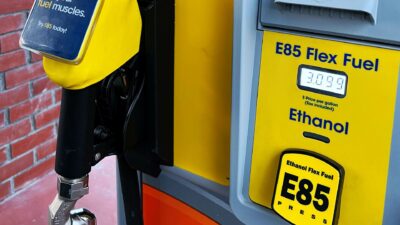Performance tuning is a passion for many automotive enthusiasts who seek to maximize their vehicle’s power and capabilities. One avenue that has gained attention in recent years is the use of E85 fuel for performance enhancement. In this comprehensive guide, we’ll explore how E85 can be utilized in performance tuning and the effects it can have on a vehicle’s horsepower and torque.
Understanding E85 Fuel
Before delving into performance tuning with E85, let’s first understand what E85 fuel is and what sets it apart from conventional gasoline.
E85 Composition: E85, short for “Ethanol 85,” is an ethanol-based fuel blend consisting of 85% ethanol and 15% gasoline. Ethanol, the primary component of E85, is derived from plant sources such as corn or sugarcane, making it a renewable and environmentally friendly fuel option.
Higher Octane Rating: E85 typically boasts a higher octane rating than regular gasoline. This higher octane level allows for advanced ignition timing, which can enhance engine performance.
Renewable and Lower Emissions: Ethanol is considered a renewable resource and is known for producing fewer carbon dioxide (CO2) emissions during combustion compared to gasoline, contributing to reduced greenhouse gas emissions.
Cooler Combustion: E85’s higher ethanol content results in cooler combustion temperatures, which can be advantageous for engine longevity and reliability.
Performance Tuning with E85
Performance tuning involves modifying a vehicle’s engine and fuel management systems to optimize power output, torque, and overall performance. E85 can be a valuable tool in this pursuit for several reasons:
1. Increased Octane Rating
As mentioned earlier, E85 typically has a higher octane rating compared to conventional gasoline. Octane is crucial for preventing engine knocking and detonation, especially in high-performance engines. By using E85 with its elevated octane level, tuners can advance ignition timing, extract more power from the engine, and achieve better performance without the risk of engine damage.
2. Enhanced Cooling Properties
E85’s cooler combustion characteristics can be beneficial in high-performance applications. Cooler intake air temperatures can help reduce the risk of detonation and allow for more aggressive tuning, including higher boost pressures in forced-induction setups. This can result in increased horsepower and torque.
3. Richer Air-Fuel Ratios
E85 requires a richer air-fuel mixture compared to gasoline due to its lower energy density. While this may seem like a disadvantage in terms of fuel efficiency, it can work to the advantage of tuners. A richer air-fuel mixture can result in more power when combined with proper tuning and the right modifications.
4. Flexibility in Fueling
E85’s compatibility with flex-fuel vehicles (FFVs) and specially tuned engines gives tuners the flexibility to switch between E85 and gasoline, depending on their performance goals and availability. This adaptability can be valuable for enthusiasts who want to balance performance and daily driving convenience.
Effects on Horsepower and Torque
So, how does E85 affect a vehicle’s horsepower and torque? The impact of E85 on performance varies depending on several factors, including the vehicle’s engine, tuning, and modifications. Here’s how it can influence these crucial performance metrics:
1. Increased Horsepower
Advanced Ignition Timing: E85’s higher octane rating allows for more advanced ignition timing. This means that the spark plugs fire earlier in the engine’s compression stroke, optimizing combustion and increasing power output. The result is often a noticeable boost in horsepower.
Higher Boost Levels: Forced-induction systems, such as turbochargers and superchargers, can take advantage of E85’s cooling properties and higher octane rating to run higher boost pressures. This can lead to significant horsepower gains, especially in turbocharged setups.
Optimized Air-Fuel Ratios: Tuning for a richer air-fuel mixture with E85 can provide more fuel for combustion, potentially increasing horsepower. However, it’s essential to strike the right balance to avoid running too rich, which can decrease power.
2. Enhanced Torque
E85’s effects on torque are closely linked to its impact on horsepower. Since torque and horsepower are interrelated (with horsepower being a function of torque and engine speed), the changes made to boost horsepower will often result in increased torque as well.
Wider Power Band: E85’s properties can help create a broader and flatter torque curve, providing more consistent power delivery across the engine’s operating range. This can enhance the vehicle’s overall drivability and responsiveness.
Improved Turbocharger Response: For turbocharged engines, the higher octane rating and cooling properties of E85 can lead to quicker turbocharger spool-up, which means torque is available earlier in the rev range. This can make the vehicle feel more responsive and deliver stronger low-end torque.
Considerations for Performance Tuning with E85
While E85 offers exciting opportunities for performance tuning, there are some important considerations to keep in mind:
1. Fuel System Upgrades
Using E85 may require upgrades to the fuel system, including larger injectors, a higher-flow fuel pump, and potentially a revised fuel pressure regulator. These modifications are necessary to deliver the additional fuel required for the richer air-fuel mixture.
2. Tuning Expertise
Tuning for E85 can be complex and requires expertise. It’s essential to work with a tuner who is experienced in E85 tuning to ensure that the engine operates optimally and safely.
3. Availability
E85 availability varies by region, so it’s important to consider whether E85 is accessible in your area before committing to tuning for it.
4. Fuel Efficiency
E85’s lower energy density can lead to reduced fuel efficiency, especially in vehicles tuned for maximum power. Drivers should be prepared for increased fuel consumption.
Conclusion
E85 fuel can be a powerful tool for performance tuning, offering increased octane, cooling properties, and a richer air-fuel mixture. These factors can result in significant horsepower and torque gains, making it an attractive choice for automotive enthusiasts seeking enhanced performance.
However, performance tuning with E85 requires careful consideration, including fuel system upgrades, tuning expertise, and an awareness of E85 availability and its impact on fuel efficiency. When approached with the right knowledge and resources, E85 can unlock the full potential of your vehicle’s engine, delivering exhilarating power and performance on the road or track.





